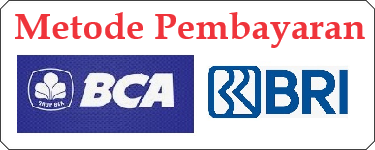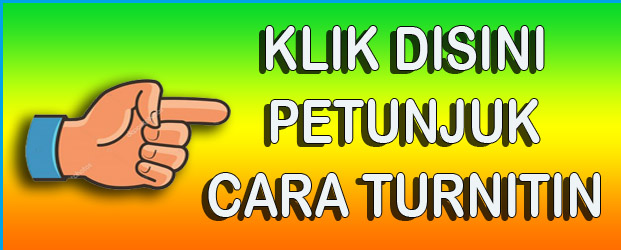IMPLIKASI KARAKTERISTIK BUDAYA MASYARAKAT DALAM PENGELOLAAN HUTAN LINDUNG GUNUNG SIRIMAU KOTA AMBON PROVINSI MALUKU
DOI:
https://doi.org/10.69840/marsegu/1.8.2024.728-735Keywords:
Cultural, Indigenous, Forest, Local WisdomAbstract
This study examines the cultural characteristics of communities living around the Sirimau Protected Forest and their impact on sustainable forest management. The surrounding indigenous communities hold a deeply rooted cultural system that includes language, knowledge systems, social organization, technology, livelihoods, and religious beliefs, all of which influence their approach to natural resource management. One of the core elements is local ecological knowledge—an understanding of the forest’s ecosystem, flora, fauna, and geography that has been passed down through generations. Key social structures, such as the roles of local leaders (raja), community councils (saniri), and forest guardians (kewang), play a significant role in ecological stewardship through customary regulations, including the sasi tradition, which restricts forest use during specific periods to prevent overexploitation. The research emphasizes the importance of involving indigenous communities in forest management decision-making processes, which not only supports ecosystem sustainability but also preserves the cultural identity and values of these communities. Findings from this study advocate for community-based forest management approaches that integrate social, economic, and cultural aspects to achieve optimal environmental sustainability.
Downloads
References
Arifin, A., & Sumarno, S. 2021. Pengelolaan Hutan Berbasis Partisipasi Masyarakat: Tinjauan Kearifan Lokal. Jakarta: PT Pustaka Nasional.
Clark, H., & Gibbons, D. 2021. "Cultural values in conservation: A framework for enhancing community engagement." Conservation Biology, 35(5), 1413-1421. doi:10.1111/cobi.13718
Creswell, J. W. 2014. Research Design: Qualitative, Quantitative, and Mixed Methods Approaches. Thousand Oaks, CA: Sage Publications.
Koentjaraningrat. 1993. Pengantar Ilmu Antropologi. Jakarta: Rineka Cipta.
Kvale, S., & Brinkmann, S. 2009. InterViews: Learning the Craft of Qualitative Research Interviewing. Thousand Oaks, CA: Sage.
Mauer, C. 2020. "Cultural values and land management: Lessons from Indigenous fire practices." Environmental Science & Policy, 104, 110-116. doi:10.1016/j.envsci.2019.11.001
Maunati, Y. 2020. Identitas, Etnisitas dan Kearifan Lokal dalam Masyarakat Adat Indonesia. Miles, M. B., & Huberman, A. M. 1994. Qualitative Data Analysis: An Expanded Sourcebook. Thousand Oaks, CA: Sage.
Nikolakis, W., & Roberts, R. 2020. "Integrating Indigenous cultural practices into forest management." Forest Policy and Economics, 112, 102089. doi:10.1016/j.forpol.2019.102089
Riyanto, R. 2019. Ekologi dan Masyarakat: Perspektif Keberlanjutan dalam Pengelolaan Hutan Lindung. Yogyakarta: Gadjah Mada University Press.
Roos, C. I., & Clark, H. 2019. "Engaging Indigenous communities in forest management: Benefits and challenges." Ecological Management & Restoration, 20(3), 183-192. doi:10.1111/emr.12386
Senoaji, G. 2005. Budaya dan Pengelolaan Lingkungan: Studi Kasus Hutan Lindung. Yogyakarta: Gadjah Mada University Press.
Senoaji, H. 2011. "Cultural dimensions of forest management: The role of local knowledge." Forest Ecology and Management, 494, 119406. doi:10.1016/j.foreco.2021.119406
Senoaji, H. 2021. "Cultural dimensions of forest management: The role of local knowledge." Forest Ecology and Management, 494, 119406. doi:10.1016/j.foreco.2021.119406
Simon, A. 2000. Kondisi Sosial Ekonomi dan Pengelolaan Hutan Berkelanjutan. Jakarta: PT Gramedia Pustaka Utama.
Spradley, J. P. 2016. Participant Observation. Long Grove, IL: Waveland Press.
Subaktini, N., Kusmana, C., dan Budiharsono, S. 2002. Pengelolaan Sumber Daya Hutan Berbasis Masyarakat. Bogor: IPB Press.
Wibowo, T., & Ismawan, D. 2018. Hutan dan Masyarakat: Kajian Budaya dan Ekologis. Bogor: IPB Press.
Downloads
Published
Issue
Section
License
Copyright (c) 2024 Evelin Parera, Ris Hadi Purwanto, Dwiko Budi Permadi, Sumardi Sumardi (Author)

This work is licensed under a Creative Commons Attribution-ShareAlike 4.0 International License.




















